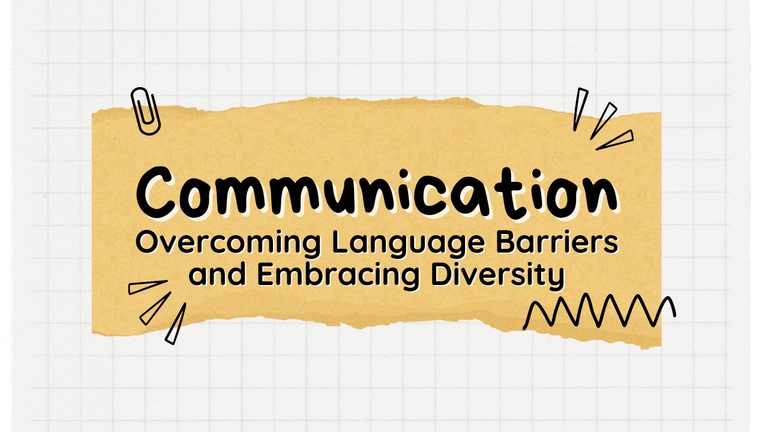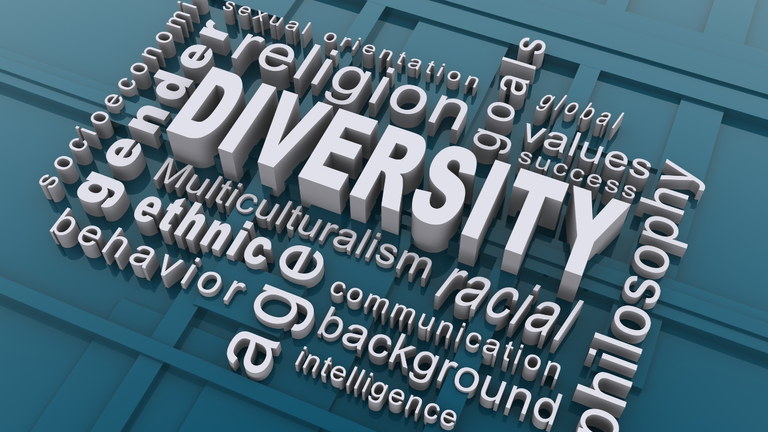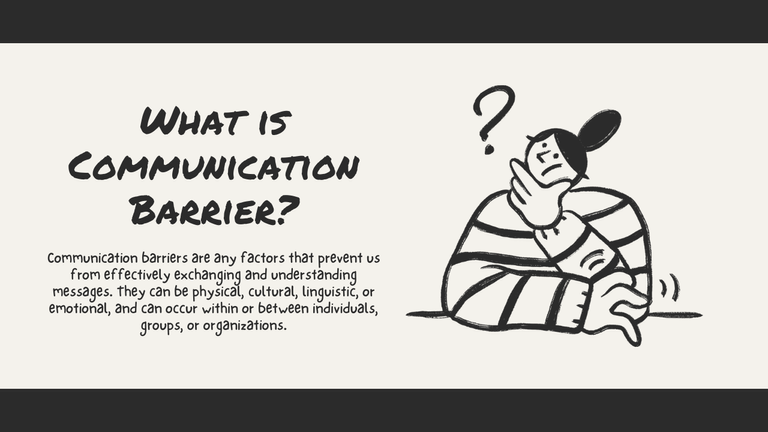Communication: Overcoming Language Barriers and Embracing Diversity
The role of communication is enormous, not just for humans, and it plays a huge role in helping us express our ideas, connect with others, build relationships, pass on cultural traditions through generations, and share knowledge. There are diverse modes of communication that can be explored by humans, such as verbal and nonverbal communication, sign language, writing, virtual, and the like.

But then, one of the fundamental tools of communication is language. The world has thousands of them, which presents us with some limitations to communication as it's almost impossible to be able to speak and understand all of them. For instance, as a Nigerian, my country is occupied by multiple ethnicities, which sums up to us having over 525 languages, and as citizens, I bearily understand 3, meaning depending on where I find myself here, there's most likely going to be a communication barrier, especially if those I'm about to speak with don't understand English.
I've been in different situations where my inability to communicate with the other party has caused me pain, and I really wish I could because it would have had a huge impact on my life. For instance, during my National Youth Service Corps (NYSC), a one-year service to the nation by all graduates in Nigeria, I was posted to the north-eastern part of the country, despite the fact that all my life I've mostly lived in the west.
During those days while serving my father's land, I experienced loads of communication barriers because, unlike in the west where I'm from, if someone doesn't understand English, they'll at least understand pigin, and with that, we can easily communicate, but in the north, the same isn't the case; most of them only communicate in their Hausa or Kanuri language, which makes my stay there a bit difficult.
And I remember prior to concluding my program there, I learned of an opening in a NGO that pays over 300 thousand naira in monthly salary to their new staff, and that made me apply. During all of the interview sections, I was sailing through excellently and had all the required qualifications, but before we got to the final stage, it was made known that since the villages we're being assigned to work don't understand English, you must be able to speak and understand Hausa and Kanuri to get the job, and it was at that point that I was disqualified because I don't meet that criteria.

Rejected and disappointed, I can't help but wish I understood those languages because there are few jobs that'll offer me half of that salary in my part of the country, and getting this job would have changed my financial status back then. Well, although I couldn't get the job, I tried to learn the language so I could at least relate to my present environment whenever I find myself around people from that part of the country again.
But then, even though there were language barriers during my days in the north, there're still ways I try to get my message across to those who don't understand me, and that's where the place of other modes of communication comes in, for example, nonverbal or virtual communication. There are days I simply use gestures to pass my message across, like pointing in a direction or simply showing a picture of something for better understanding, and that way, things become easier.
That reminds me of my childhood days. While growing up, one of the many ways my mother talks to my siblings and me whenever we're around a visitor or stranger is via body language, facial expressions, or eye contact, and even though she didn't alter any word, via those nonverbal communication, we understand perfectly what she's saying and definitely won't go against it so as not to be scolded later.

For example, let's say a visitor comes in and gives us edible snacks or drinks. Mom can easily make a body language that would make me know if I should collect them or not, and even when she allows you to collect them, it doesn't mean you've got the right to consume them. I remember a day when I was very tasty, and a total stranger gave us juice. Mom was fine with me collecting it, but she kept telling me not to drink it with her body language. I ignored it, and I faced the full consequences later, which made me vow to always take heed to her direct and indirect communication.
But then communication is amazing; your ability to speak and understand someone else's language plays a huge role in helping you get accepted by them, and such could also come in handy in the face of dangers. For instance, if someone is planning something evil and assumes no one understands the language they speak, your ability to understand can give you the edge to quickly seek help before things get out of hand.
Personally, one of my desires and goals is to be able to speak and understand some international languages to a substantial level, so that when I find myself around people in those regions, I won't feel like a stranger unable to communicate. The two languages I hope to learn are Spanish and French. These two languages are widely spoken across the world, and being able to speak them alongside English will give me an edge.
That's about it for now. I hope you enjoyed the read and had one or two things to learn from my experience. Do have a wonderful day and stay blessed.
This post was prompted by the Inleo team and interface prompt for the month of April; kindly read for more information via the announcement post.
Thumbnail designed on canva
Posted Using InLeo Alpha
Posted Using InLeo Alpha
@tipu curate 2
Upvoted 👌 (Mana: 7/47) Liquid rewards.